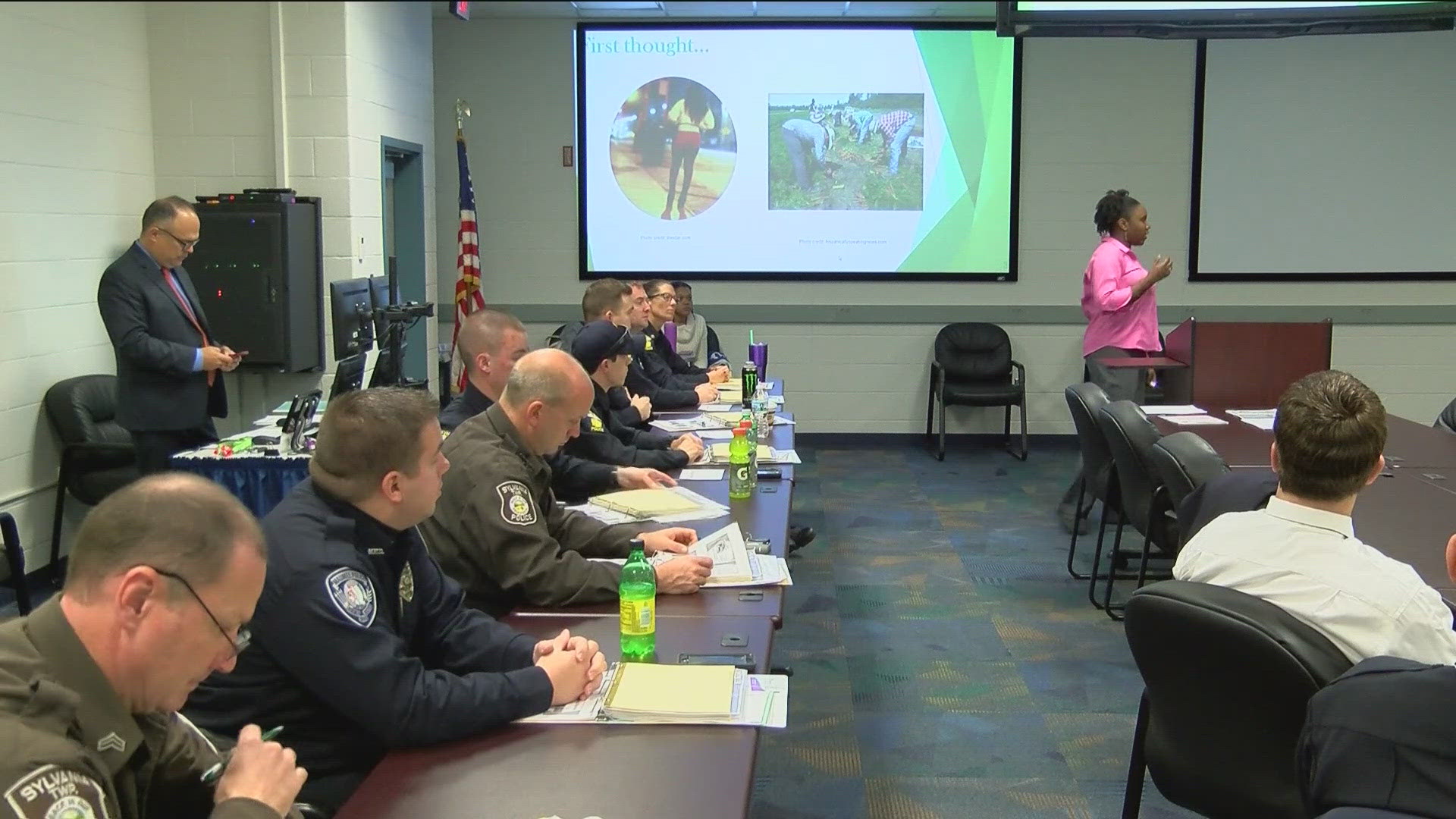TOLEDO, Ohio — Toledo Police Chief Troendle said last month a SWAT officer was forced to shoot and kill Erica Allen, who had a knife. He said the officer acted to save children.
He called it a mental health situation and the department said it's seen an increase of calls dealing with mental health since 2020.
But who trains law enforcement to deal with these situations? That's where Mental Health and Recovery Services Board of Lucas County comes in.
Scott Sylak is the executive director of the board. The board has been funding crisis intervention training since 2001.
"We want law enforcement officers to go home safe," Sylak said. "We want community members to go home safe. So, we want to give them the tools that law enforcement needs to have very positive outcomes in our community."
Since that time, they've trained more than 1,500 Lucas County law enforcement officers and 911 dispatchers from dozens of departments. While this intervention can't help in every situation, Sylak said it's still important.
"Law enforcement officers traditionally have been taught command and control," Sylak said. "That doesn't work with an individual who's going through a psychiatric emergency. And in fact, it may escalate the situation."
In a 40-hour training, officers are taught de-escalation techniques, like using a calm voice or starting a dialogue. But right now, they want Lucas County to know if you're in need, you can simply call 911 and ask for the Crisis Intervention Team (CIT) officer to respond to a mental health emergency.
"Their loved one [is] going through a psychiatric emergency or just not really sure what's going on, requesting a CIT officer can't hurt," Sylak said.
Sylak said they have a training four times a year. He said these classes are voluntary - but each and every session ends up full.
WATCH MORE FROM WTOL 11

